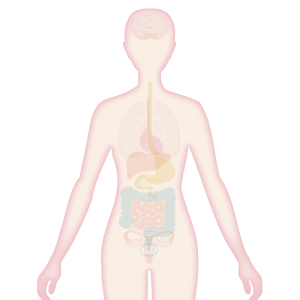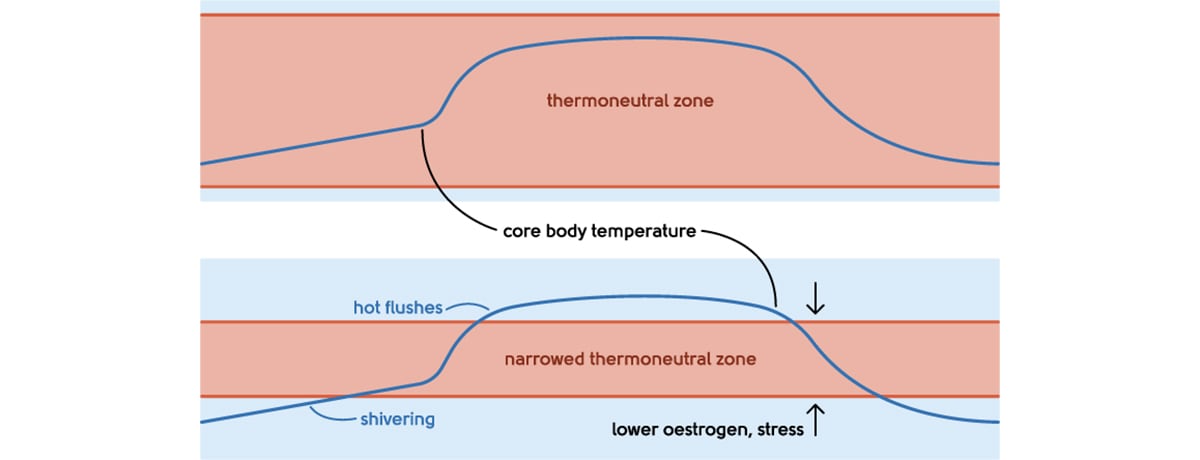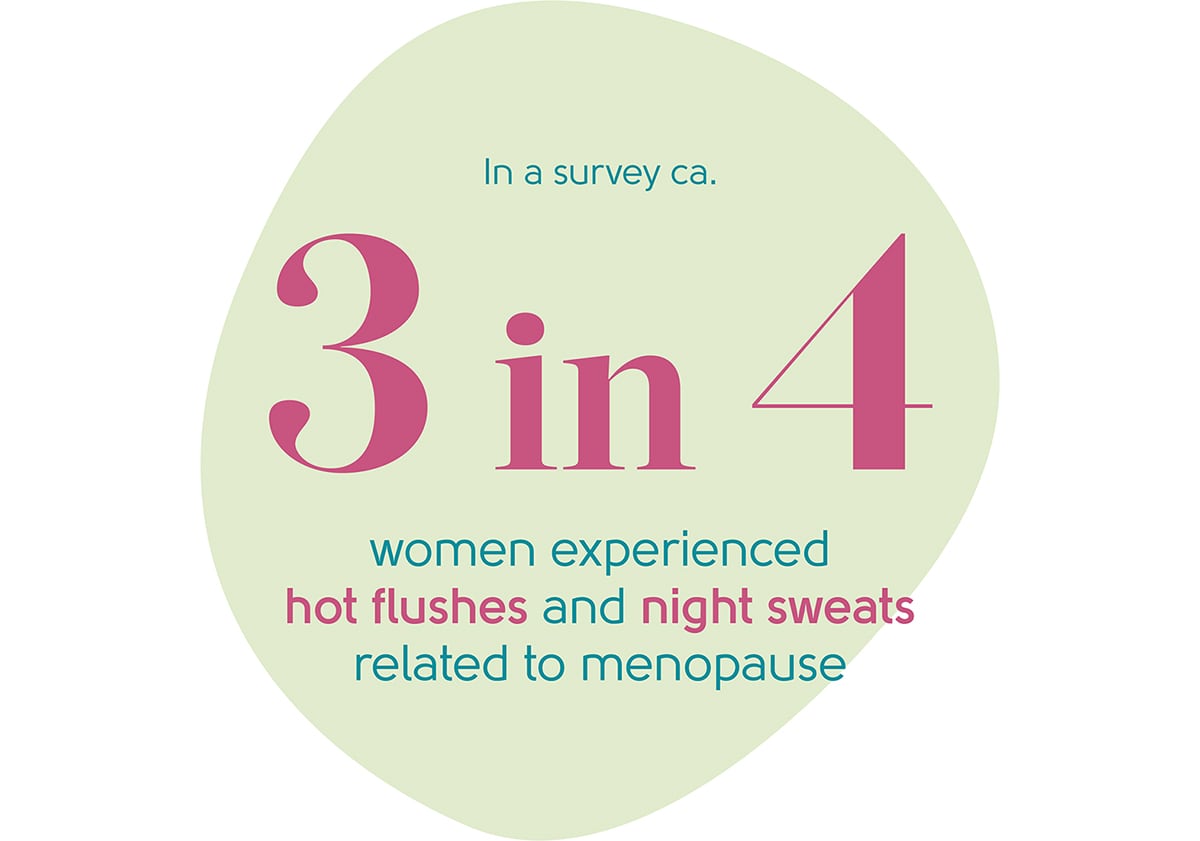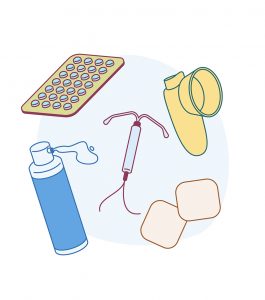Downloaded from www.mymenopausecentre.com
Direct URL: https://www.mymenopausecentre.com/symptoms/body-odour/
Menopause and body odour
It's not uncommon for body odour to change during the menopause. Hot flushes cause the body to sweat more and a permanent change in odour can be caused by changes in hormone levels.
Explore

Book an appointment
The highly experienced doctors and nurses in our menopause clinic are here to help you. Appointments from £190.
Book An AppointmentIf you would like to learn more about the impact of your symptom(s) complete our free online menopause questionnaire here.
What are menopause-related changes to body odour?
Sweat and body odour can be an issue for some women during the menopause transition, especially if they experience hot flushes. In more severe cases, some have to change their clothes or nightclothes, and some even resort to cutting their hair to prevent the feeling that it’s sticking to their neck.
Lots of women tell us they are more aware of their sweat smelling stronger. It’s worth knowing that your sense of smell can change in the menopause and you may think that you smell horrible even though you don’t.
We understand that none of this is very pleasant, and that’s why many women come to us for advice.
What causes changes to body odour during the menopause transition?
Sweat glands regulate temperature and cool you down. In the perimenopause and menopause, the thermoneutral zone (the zone when you’re neither too hot nor too cool) is reduced. Your body reacts by sweating at lower temperatures and making you shiver at higher temperatures than before. That’s why you sweat more during the menopause.

How the thermoneutral zone narrows during the menopause
We also sweat more when stressed, anxious, fearful or in pain – another reason many women sweat more in the menopause. Some people also sweat after eating.
A drop in oestrogen levels in the menopause can leave some women with relatively more male hormone (testosterone). This can cause them to have more bacteria in their sweat, and that sweat may smell more. It’s also why acne and skin changes can become an issue in the menopause.
Your body produces sweat from two types of glands
Eccrine sweat glands
These are found on most of your body. The palms of your hands or soles of your feet have more of them, while your tummy and back have fewer. Eccrine sweat is mostly clear water and doesn’t smell.
Apocrine sweat glands
These are found in your armpits and around your anus. This sweat contains more proteins, carbohydrates and fats, which means it’s more likely to contain bacteria that cause body odour.
In addition to the menopause, there is a condition called hyperhidrosis which causes excess sweating. This can be medically managed with prescription deodorants, a procedure called electrophoresis, and Botox.
How many women typically experience a change in body odour?
There’s no exact number, but there have been studies into hot flushes, which are often associated with sweating and body odour. From these studies, we know that around 75% of women experience hot flushes or night sweats. These flushes can last around seven years, though one in five women experience hot flushes for over 15 years.

Is body odour linked to any particular stage of the menopause?
A change in body odour can happen at any time of the menopause transition, whether or not it’s related to hot flushes.
Likewise, if the change in body odour is linked to sweating due to stress or anxiety, it can occur at any time during the menopause transition.
How can body odour be treated?
Managing hot flushes and night sweats is the first step towards alleviating body odour.
Hormone Replacement Therapy (HRT)
HRT is the most effective way of managing hot flushes and night sweats[2]. For that reason, many women find it effective. There’s a lot to learn about HRT – the benefits and the potential side effects – before you decide if it’s right for you.
You can learn more about HRT here.
Other options to consider are:
Products
Many women find the following products help:
- Fans and cooling sprays – great for keeping cool during the night
- Cooling pillows – can be helpful for the night time
- Antiperspirants – these work by blocking the sweat glands. Some contain antibacterial agents to combat smelly bacteria
- Extra strength deodorants – speak to a pharmacist to identify the best one for you
Most supermarkets and pharmacies sell products for managing sweat, including natural alternatives.
Clothing
Try to keep cool with loose, light cotton (rather than synthetic) clothing. There are lots of great nightwear options available.
Managing stress and anxiety
Managing stress and anxiety isn’t always easy, but it can help – read our information on anxiety here where you’ll find lots of practical tips. Try to be prepared for sweats to occur in whichever way you find helpful (clothing, fans, having a bottle of cool water to hand for example). Feeling more prepared may help you avoid being anxious about sweating – and this can help you to break the vicious cycle.
It’s important to know that there are other medical conditions that can result in an increase in sweating. If you have other symptoms or have other concerns, please speak to a doctor.
What next?
If you’re worried about body odour, you should see your GP. If you would like to discuss your symptoms in the context of the menopause, book an appointment with our menopause clinic.
If you think you may be experiencing symptoms of the menopause transition, you can learn more with our symptom checker or by taking our Menopause Questionnaire.
You can also find more information about the menopause transition at the British Menopause Society and the National Institute for Health and Care Excellence.
Authored by:
Dr Clare Spencer
Registered menopause specialist, GP and co-founder; see Dr Clare in person at The Spire Hospital, Leeds or online
Last updated:
07/04/2021
Book an appointment
The highly experienced doctors and nurses in our menopause clinic are here to help you. Appointments from £190.
Book An AppointmentLearn more
Join the pause. community
We’ve created pause. as a space for women to come together and share stories about their menopause experience, ask questions, and to find support and inspiration. We'll also share the latest news and updates on the menopause from our experts.
Want to be the first to hear our latest news? Join our pause. community today.
Share your email to receive the latest news, updates and information on new products and treatments from My Menopause Centre and our pause. community. You can unsubscribe at any time.
We're committed to protecting and respecting your privacy - see our Privacy Policy and Terms and Conditions

Book a consultation
Whether you want to discuss your symptoms, create a treatment plan that's right for you, understand some test results or have a check-up, the highly experienced doctors and nurses in our menopause clinic are here to help you.
Book nowReferences
-
Source: Hamoda H, Panay N, Pedder H, Arya R, Savvas M. The British Menopause Society & Women’s Health Concern 2020 recommendations on hormone replacement therapy in menopausal women. Post Reproductive Health. 2020;26(4):181-209.
-
Source: NICE NG23 2015.
Contact My Menopause Centre
- General enquiries: hello@mymenopausecentre.com
- Book appointments online: Log into your account and go to 'My appointments'
- Book appointments by phone: 0333 444 1067
- Website: https://www.mymenopausecentre.com


















